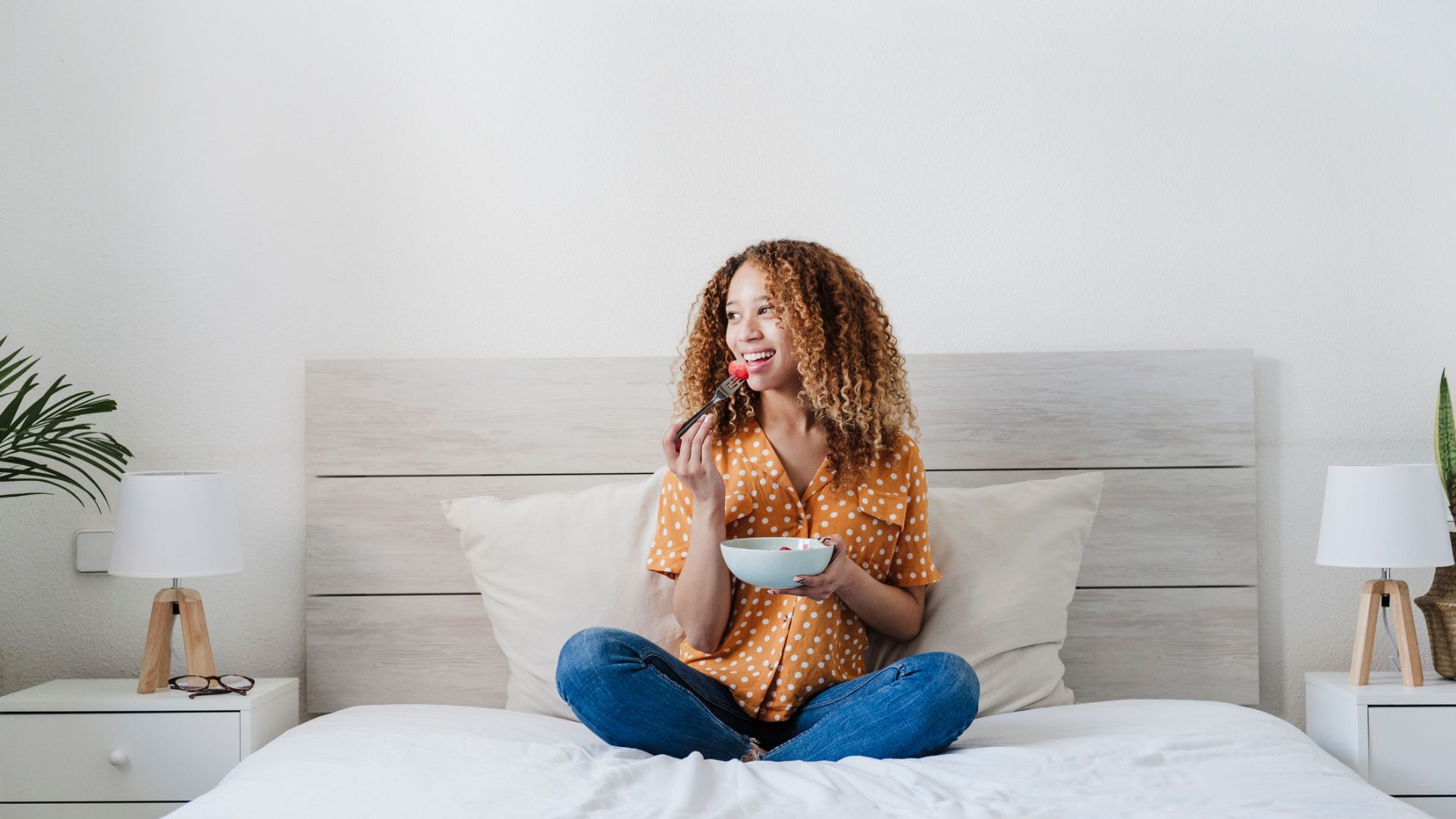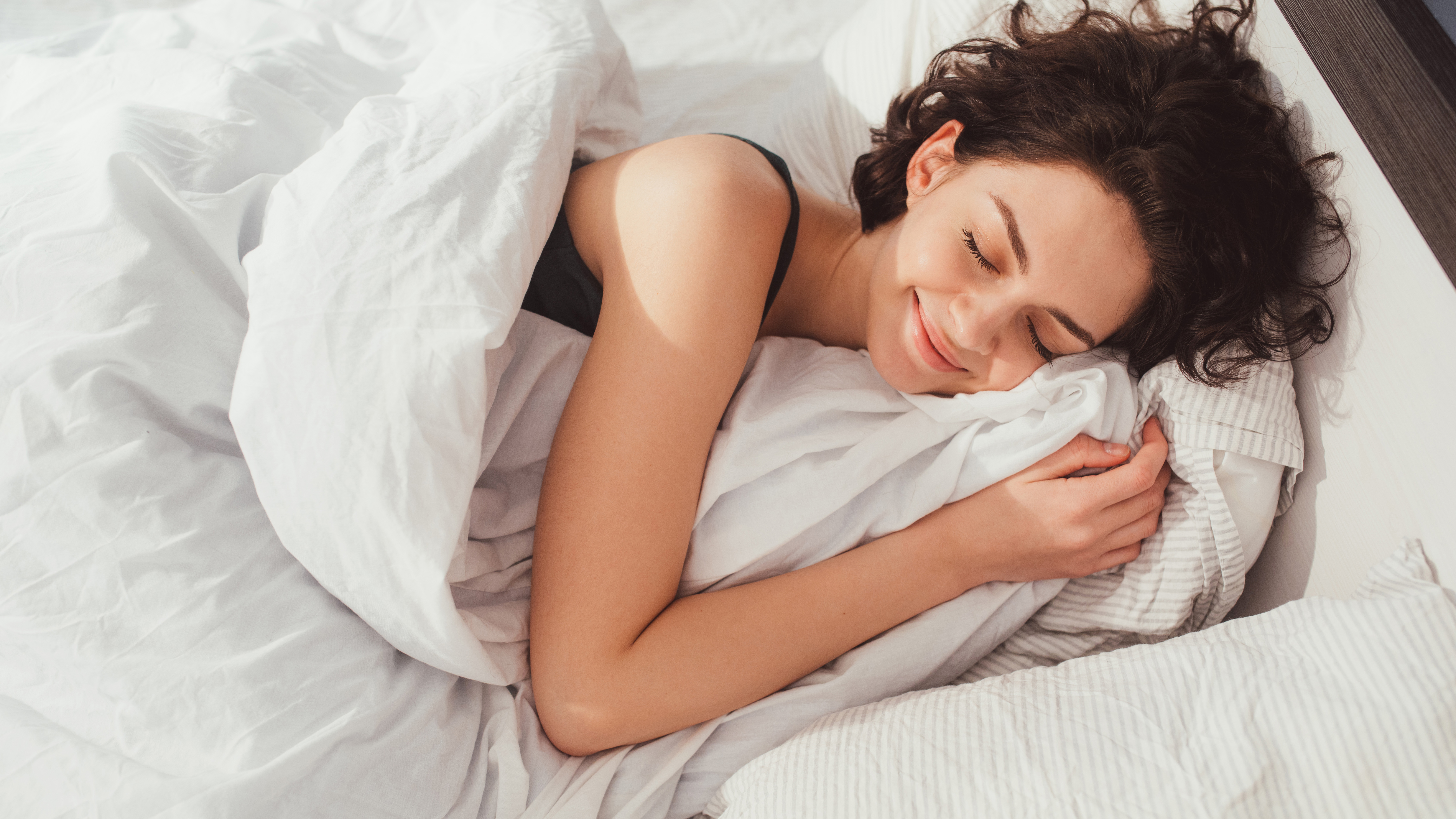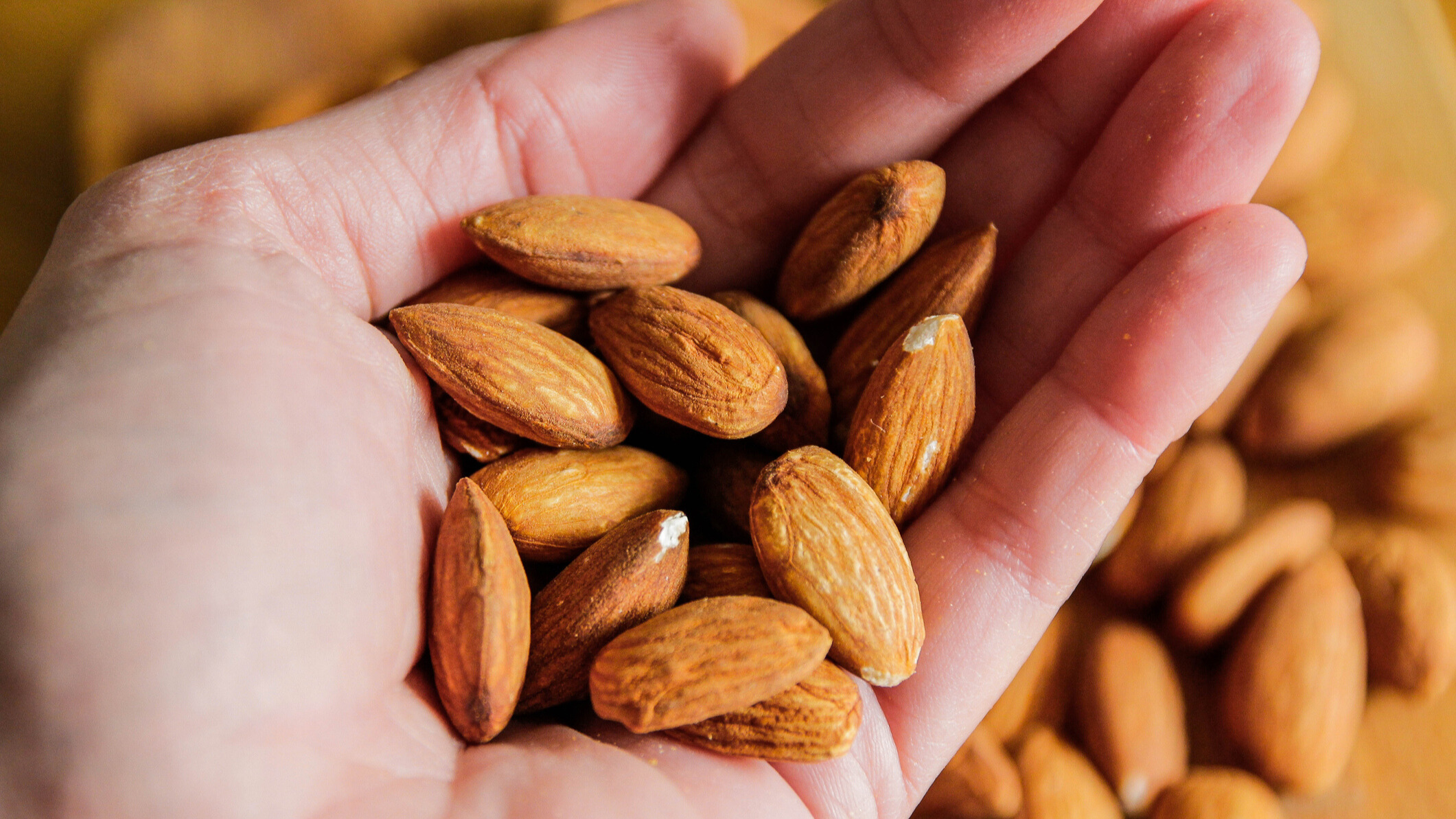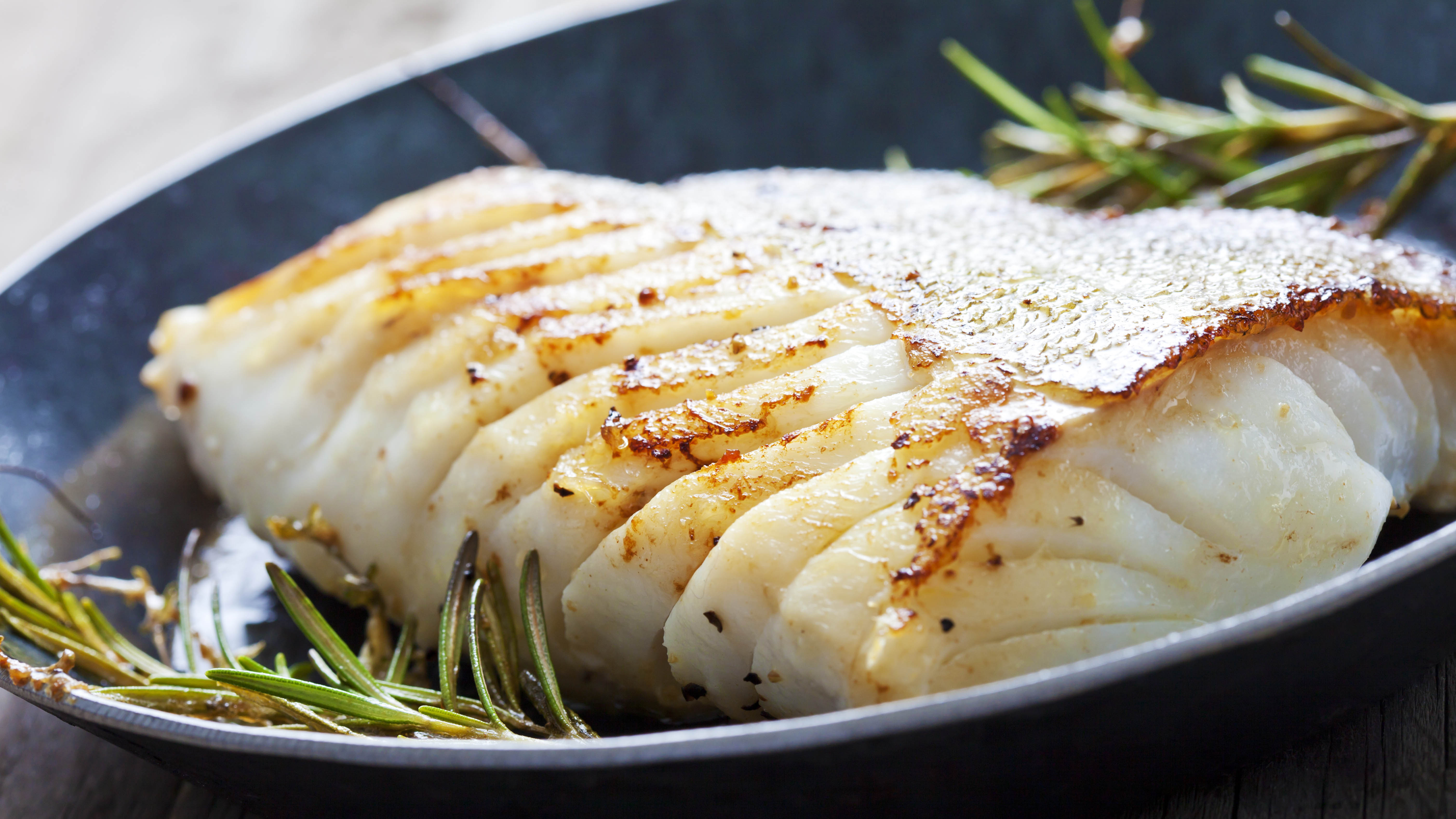You could get 18 minutes more sleep a night with this easy diet change
Fish, almonds and milk all contain the one ingredient that helps you sleep for longer

We tend to focus on how our evening habits affect our sleep. But actually, what we do during the day can have a big impact, with one major factor being our diet.
While we know sugary snacks in the evening are a no-go for quality rest, there are foods that can improve your sleep. Any food or drink high in melatonin (the sleepy hormone), for example, can induce calm and help you drift off to sleep.
But a recent study has found that increasing your protein intake can lead to increased sleep duration, too.
And, while sleep duration isn’t the only predictor of quality rest (sleep regularity is an important factor, too,) getting more ZZZs a night means you’ll likely have more full sleep cycles and enough time spent in key sleep stages, like REM and deep, slow-wave sleep.
We’re taking a closer look at how protein can improve your sleep, as well as the top 3 foods that are high in both protein and melatonin so you can start enjoying longer, better sleep.
How increasing protein can increase your time sleeping
The researchers for the study in Japan analyzed data from 4,825 users of the Pokémon Sleep and Asken smartphone apps.
For seven days, they recorded their diet against objective sleep parameters. The study concluded that a 6% rise in protein increased total sleep time by 0.3 hours — that's 18 more minutes of sleep a night.
Sign up to get the BEST of Tom's Guide direct to your inbox.
Get instant access to breaking news, the hottest reviews, great deals and helpful tips.

Other research has found a positive link between protein and sleep quality, and one study showed a stronger link between plant based protein and improved sleep, than animal protein.
The same research found that processed red meat and poultry had an adverse effect on sleep quality, whereas plant-based protein increased sleep quality. Interestingly, the positive effect was more noticeable in women than men.
So, while protein can increase your time sleeping, the type of foods you incorporate into your diet is also an important consideration.
3 foods high in protein and melatonin to help you sleep
Protein isn't the only nutrient that can improve your sleep. Melatonin, as mentioned earlier, is essential for good sleep, while minerals like magnesium are also important.
Below are three foods that have a great balance of sleep-inducing components. So, whether you're looking for healthy nighttime snacks or want to shake up your whole diet, incorporating these three foods can benefit your sleep.
Almonds
Research has shown that almonds can actually reduce insomnia. This may be because they contain high doses of melatonin, which is a hormone that regulates your sleep-wake cycle.
Alongside this, they also contain lots of magnesium, which is a mineral proven to improve sleep quality.
All nuts contain a lot of protein, and almonds are no different, making them a fantastic, sleep-inducing snack.
Incorporating them throughout the day in your diet will be beneficial, or alternatively, opting for a handful as a late night snack.

Milk
As well as being high in both protein and melatonin, milk also contains tryptophan.
This is an amino acid that helps with melatonin production and is essential for inducing sleep.
In fact, research has shown that increased tryptophan intake decreases the amount of time it takes to fall asleep.
A glass of milk before bed is a great way to relax and incorporate some essential sleep-inducing nutrients into your diet.
Fish

Fatty fish is not just a healthy, tasty dinner, but it also contains everything you need to have a peaceful night’s sleep.
From protein and melatonin to Omega 3 and Vitamin D, fish like salmon contain essential nutrients to keep the sleep-wake cycle regulated.
On top of this, you can expect high levels of magnesium, too.

Lauren is an experienced writer and editor in the health and lifestyle industry and has led many campaigns and projects that deliver news, advice, and research on all things sleep. As the Sleep Features Editor for Tom’s Guide, Lauren writes, commissions and edits sleep and mattress content, from in-depth how-tos in sleep and mattress health to interviews with doctors and neuroscientists on the latest news in sleep. Lauren regularly tests new sleep tech and accessories to evaluate their effectiveness for getting good quality sleep and easing specific sleep struggles like nighttime anxiety. Alongside this, Lauren reports on the best mattress brands out there, like Helix, Saatva, and DreamCloud, helping readers find the right mattress for them and the best deals on them.
You must confirm your public display name before commenting
Please logout and then login again, you will then be prompted to enter your display name.
